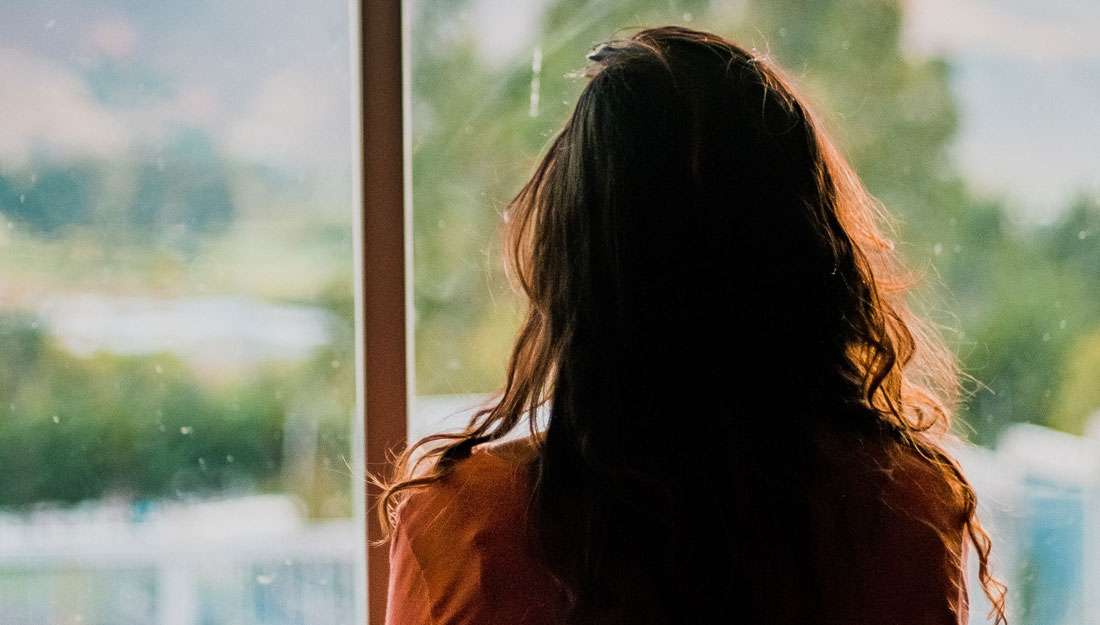- Mary Leigh Meyer
- COVID-19, Healthy Living, Medicine, Show on VR homepage
Grief: A guide to grieving during the COVID-19 pandemic
During a time of social isolation and the novel coronavirus, it can be difficult to process your grief when you cannot connect with others as easily

Grief has a regular place in any culture, whether there is a global pandemic or not. Because it is something everyone has dealt with over time, we have developed many traditions and coping mechanisms surrounding how to say goodbye to a loved one. “The mandates about social isolation disrupt many cultural norms that surround grief,” said Bradley Bogdan, LCSW-S, clinical social work supervisor at the Department of Psychiatry and Behavioral Sciences in the Texas A&M College of Medicine. “A lot of our best coping mechanisms for grief and traditions involve setting up social supports on both an individual and group basis. However, now things are different. Many people are struggling to find ways to grieve and mourn without being able to say goodbye face-to-face, without planning or attending a funeral or without being able to swing by a friend’s house with a homecooked meal.”
What is grief?
No two people experience grief in the exact same way, which makes it difficult to define. However, for most people, grief is a natural and healthy response to the sudden stress that goes along with the loss of a loved one. “In most cases, grief gets better with each passing week,” Bogdan said. “However, in certain cases, the grief can last longer and be more complex.”
He explains common symptoms of grief are fairly synonymous with feelings of depression. Someone who just lost a loved one may feel a sense of purposelessness, irritability, numbness or emptiness. They may also have difficulty processing things at their usual cognitive speed. Similarly, they may experience symptoms most often associated with a trauma victim such as intrusive thoughts about the person who passed, and they may socially withdraw.
The impact of social isolation on grief
The country is living in a world of quarantines and social distancing. Bogdan emphasized social isolation impacts grief both before and after the death. Everything from final goodbyes to funeral services have changed.
“A lot of these customs we expect to have when someone passes function as a therapeutic process for the grieving individuals,” Bogdan said. “These customs set up mourners with various social supports that get them interacting with other people in healthy ways.” For example, many traditions surround the idea of creating a space for friends and family of the deceased loved one to talk about the deceased. They can process the death in different written or verbal ways. Similarly, he mentioned the show of group support, including wakes, funerals and memorial services.
“These customs functions similarly to group therapy where you can be around people who are experiencing things in a similar way and share your experience,” Bogdan said. “Those social supports are the biggest things that get striped away during these social distancing times.”
Tips to handle grief while socially isolating
“Just because you cannot engage in your usual mourning rituals does not mean you cannot engage in the same processes,” Bogdan said. “For example, if you want, you can hold a memorial service over a video conferencing program. It is possible to set up an hour meeting and invite everyone who knew the person to join and share stories.” He encourages being creative and finding ways to adapt your usual rituals to the current constraints as opposed to putting it off until after the pandemic.
If you have friends or family experiencing intense grief, Bogdan encourages you provide the same emotional support at the same level that you would if you could go over in person. For example, if you would usually visit a friend and bring a home-cooked casserole for dinner, you could order a delivered meal to them then chat via video call or telephone to talk for a few hours. Or, if you would typically help by doing chores around the house, you may be able help in other ways like delivering groceries to their porch or mowing their lawn, but not entering the house.
Bogdan also encourages offering a space to talk about normal things as it can be incredibly helpful to the person struggling with grief. “If you do not know what to say or what to do, you have no real wrong way to show support provided you give the person the opportunity to say ‘no’ if they do not want that support at that same time,” Bogdan said. “Even being able to provide a level of normalcy can help. Call them, then chat about things you would normally speak about like your children or the most recent football trade. You do not have to talk about the grief or the pandemic unless they bring it up.”
The bottom line
Ultimately, grief is a natural and expected part of life. Although you can support loved ones during moments of grief, they need to heal on their own time. “If you have signs of grief that last longer than several months or you have a severe disruption of everyday life at any point during the grieving process, seek help,” Bogdan said. “You may be experiencing what is called complicated grief. That being said, there is no wrong time to speak with a therapist about grief, whether you think you need help or not.”
Media contact: media@tamu.edu


